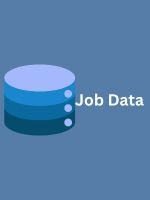How can researchers use this kind of data to understand new insights into radio news? Thebelow looks at pronoun usage on comparing the percentage of words spoken each day that were either (“we”, “us”, “our”, “ours”, “ourselves”) or (“i”, “me”, “i’m”). “Me” words are us more than twice as often as “we” words but look closely at February of 2020 as the pandemic began sweeping the world and “we” words start increasing as governments began adopting language to emphasize togetherness.
The graph below compares the percentage of
Spoken words that mention since the start europe cell phone number list of this year across BBC News London (television) versus radio programming on BBC World Service (international focus) and BBC Radio 4 FM (domestic focus).For now, you can download the entire dataset to explore on your own computer but there will also be an interactive visualization and analysis interface available sometime in mid-Spring.
All three show double surges at
The start of the year as the pandemic swept across the when it comes to launching products world, a peak in early April and then a decrease since. Yet BBC Radio 4 appears to have mention the pandemic far less than the internationally-focuse BBC World Service, though the two are now roughly equal even as the pandemic has continue to spread. Over all, television news has emphasizd more than radio.
The personal stories, family histories, and threads to the past
Are precious. And fragile. That’s why it’s on us, all of us, to malaysia data protect and keep them safe. That’s why I work at the Internet Archive, and why its mission is more critical than ever.
Right now, we’re in the middle of our yearly donations drive. The end of the year is a time both to look back and to give back, and the Internet Archive is hard at work on both. So if you’ve found something in the archive that’s meaningful to you, or that brought back memories, or that you think should be preserved, we’d love it if you could chip in.
